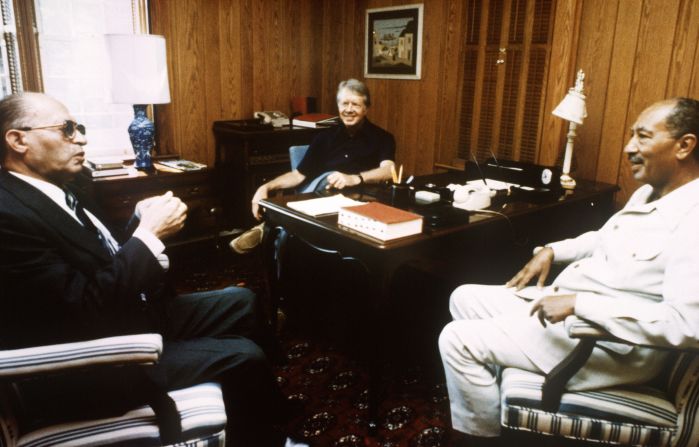
A version of this story appeared in CNN’s What Matters newsletter. To get it in your inbox, sign up for free here.
Jimmy Carter sets a new record on October 1, his birthday, when he will become the first American president to reach triple digits.
It’s a milestone more and more Americans will reach in the years to come – and something the American social safety net is not prepared for.
Carter’s post-presidency began in 1981 after he lost his bid for reelection and when he was 56, too young for Social Security and Medicare.
A very long, incredible retirement
Carter did not dedicate his post-presidential life to sitting on corporate boards and raking in speaking fees, as other recent presidents have done.
Carter got his hands dirty building houses, took on peace missions to Cuba and the Middle East, negotiated the release of hostages, lived in his home town, taught Sunday school and college classes, wrote books, and won Grammys.
His has been, indisputably, the longest, most righteous and most productive post-presidency in history, although John Quincy Adams’ post-presidential, anti-slavery efforts in Congress get honorable mention.
In the nearly 44 years since he left office, Carter helped essentially eradicate Guinea worm, a parasite that infected around 3.5 million people in the mid-’80s and just 14 in 2023, according to The Carter Center.
It’s been 22 years since he won the Nobel Peace Prize in 2002, just as the US was preparing for war in Iraq. Carter also paid a landmark visit to Cuba that year.
It’s been nine years since Carter announced at a news conference that he had been diagnosed with brain cancer and might not have long to live.
CNN’s Stephen Collinson wrote at the time:
“I have had a wonderful life,” Carter said with the same unsparing honesty and meticulous detail that marked his presidency. “I’m ready for anything and I’m looking forward to new adventure,” Carter said, in the 40-minute appearance before the cameras, in which he frequently beamed his huge smile and never fell prey to emotion. “It is in the hands of God, whom I worship.”
Carter had more to do
By December 2015, Carter announced that after treatment, the cancer was gone. A timeline of his life maintained by CNN’s research library has many more notable entries.
It’s been nine years since Carter published an autobiography, “A Full Life: Reflections at Ninety.” He won a Grammy Award – his second – for the audiobook. He would win a third a few years later.
It’s been seven years since he was hospitalized for dehydration in Winnipeg, Canada, where he was outdoors – still working! – for Habitat for Humanity, the organization with which he had a long association.
It’s been five years since 2019, when he won that third Grammy, broke his hip and joked that there should be an age limit on the presidency since he couldn’t have done the job at 80. That was also the year he turned 95 and became the longest-living American president, surpassing George H.W. Bush.
It’s been nearly two years since Carter entered hospice care and nearly one year since his wife, Rosalynn, died. They were married in 1946.
Jimmy Carter’s life in pictures
More people will turn 100
As remarkable as Carter made his years since American voters retired him from the White House, there’s also something increasingly normal about people living to 100.
Former presidents, all well-to-do and protected by a generous pension, aren’t a representative sample of society, but it’s notable that the four oldest former presidents – Carter, Bush, Gerald Ford and Ronald Reagan – all lived in the 21st century.
Overall, US life expectancy dropped during the Covid-19 pandemic. It has not yet returned to pre-pandemic levels, and it lags behind other developed countries, according to an analysis by KFF. As of 2022, the life expectancy for US males was 74.8 and for US females was 80.2.















































































